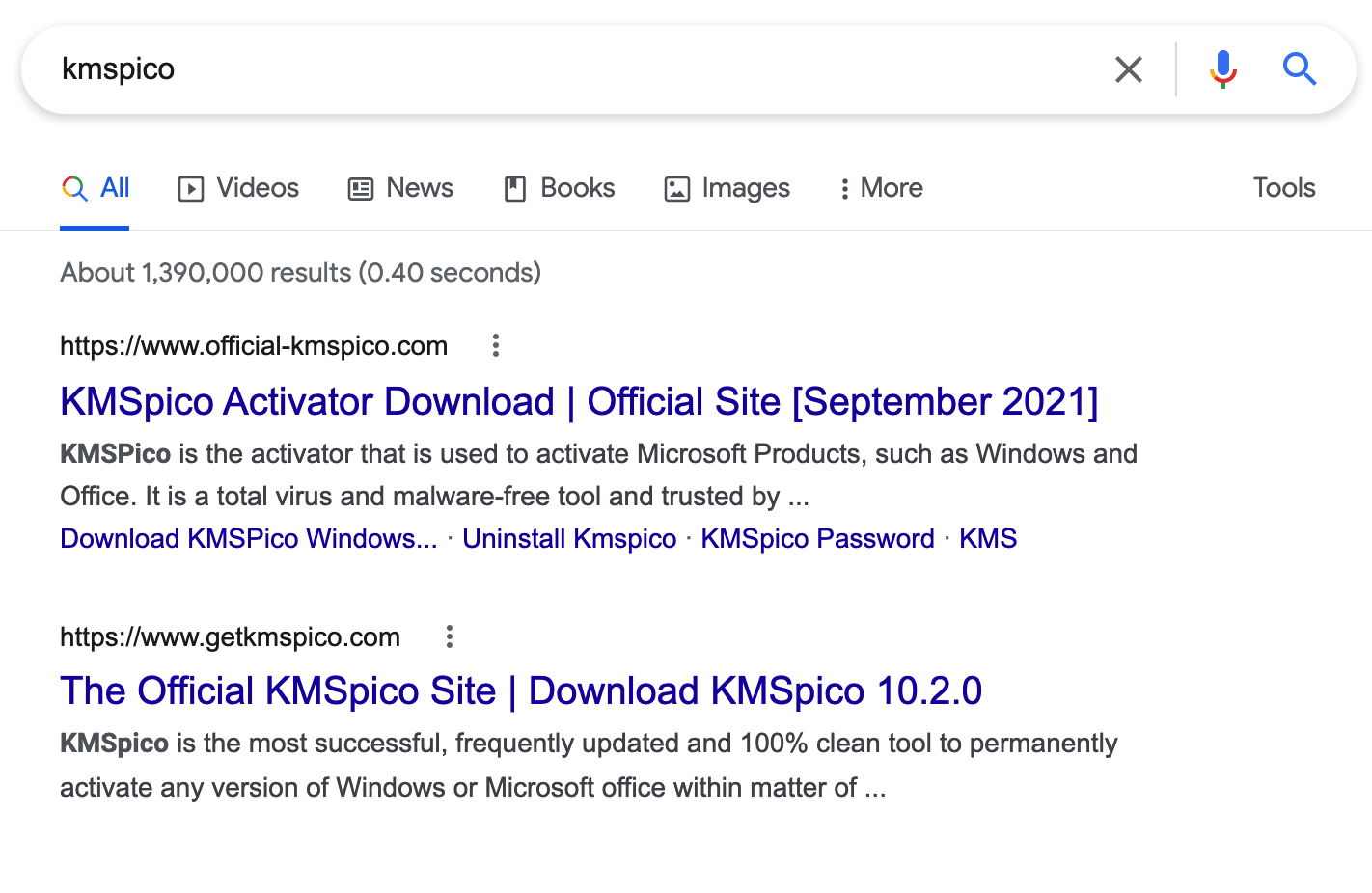Hackers are infecting Windows activators like KMSPico to steal from cryptocurrency wallets
Why it matters: Software piracy isn't new, just with the proliferation of "activators" for Windows and Office, y'all too have malicious actors scrambling to accept advantage of unsuspecting users who utilize such tools. Their victims practise this assertive they save on software licensing costs, but at the same time, they expose their systems to sophisticated malware that evades detection by commercial antivirus solutions and tin steal sensitive information.
If you're purchasing or building a new PC, chances are you'll need to buy a Windows license for information technology. Many people aren't willing to function with more than $100 to get ane, so they oft resort to purchasing cheap keys from gray market place websites or using i of several "activators" available online. The latter pick is always a risky motion, but historically information technology hasn't caused any major damage to most users who went downwards that route.
According to security researchers at Red Canary, malicious actors have recently modified one of these tools to distribute malware that can steal tokens from cryptocurrency wallets. The tool in question is KMSPico, which can emulate a Fundamental Management Services (KMS) server locally to activate licenses for Windows and Office products.

I of the malicious KMSPico installers analyzed by researchers comes packed with Cryptbot malware that tin steal credentials and other sensitive information from web browsers installed on your PC. It also affects various cryptocurrency wallets such as Ledger Alive, Atomic, Electrum, Exodus, Coinomi, and more. More importantly, it can be used to drop banking malware such as Danabot or whatsoever other malicious payload.
It'due south also worth noting the Cryptbot malware is hard to observe, as its creators employ various methods to escape detection by traditional antivirus solutions, including encrypted binaries. Either way, this proves that going the piracy route in the instance of Windows and Office isn't worth it if you consider the risks involved. If annihilation, buying a PC that comes with Windows pre-installed when it'southward on sale might be the all-time fashion to salve money on the licensing front end.
Ruby Canary intelligence analyst Tony Lambert says information technology'south not only regular abode users that use this tool. Many pocket-size businesses try to save on licensing costs by using pirated copies of Windows and Office activated using KMSPico, which introduces a lot of security risks for their It infrastructure. Lambert notes the firm even "experienced one sick-fated incident response engagement where our IR partner could not remediate one environment due to the organization not having a single valid Windows license in the environs."
Masthead credit: Arget |via Unsplash
Source: https://www.techspot.com/news/92509-hackers-infecting-windows-activators-like-kmspico-steal-cryptocurrency.html
Posted by: heathhichit.blogspot.com


0 Response to "Hackers are infecting Windows activators like KMSPico to steal from cryptocurrency wallets"
Post a Comment